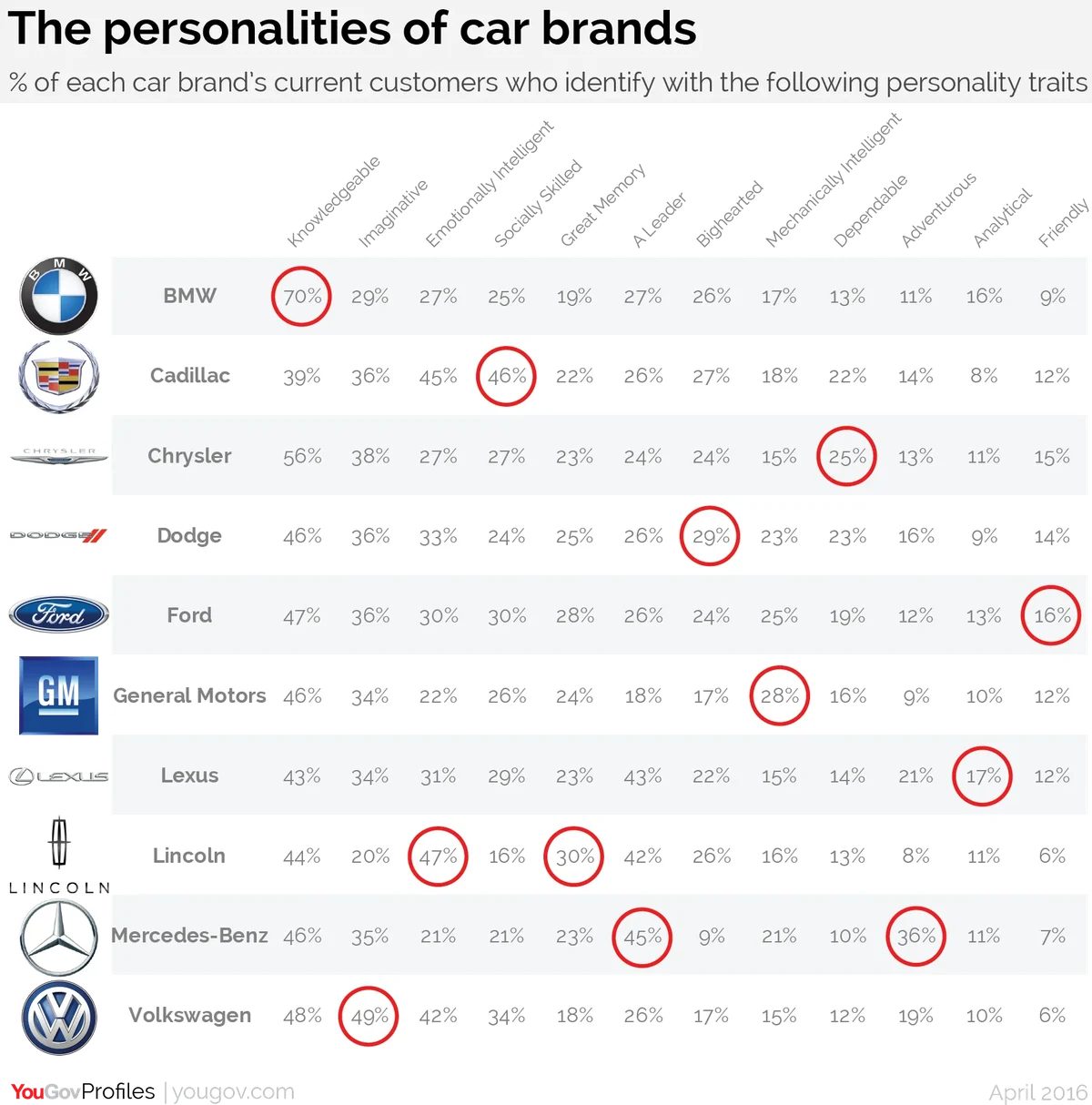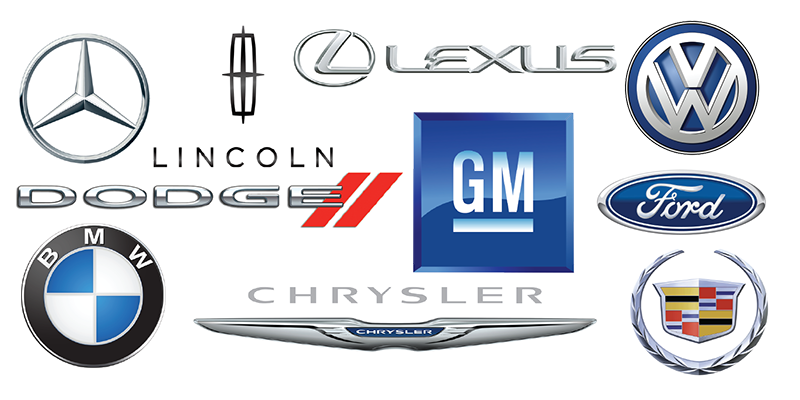It's not just the practicalities that differentiate car manufacturers — new research from YouGov Profiles shows how the different marques have different personalities, too
Every year, various organizations release car ratings based on a vehicle's performance, design, and safety. These factors help shape the decision process of future car buyers, but they are far from the only considerations at play.
There's also a more general sense of what each car brand represents. What does a Ford logo convey, and how is that different from Dodge?
Using YouGov Profiles — our database of attitudes and behaviors of over 200,000 Americans — we approached this from a new perspective. Instead of simply asking people what they associate with different car brands, we investigated the long-term personality data we have on our members and looked for the defining traits of each customer group. In other words, what do the personalities of the drivers of these cars reveal about the brands themselves?
The results were striking. BMW customers, for example, are likely to consider themselves more knowledgeable than most people, yet they are less mechanically intelligent than GM owners. While people who drive a Mercedes-Benz see themselves as both leaders and highly adventurous, Volkswagen drivers reckon they have the most imagination.

So, why the vast differences in personality? Why would, say, 46% of Cadillac owners claim to be socially skilled, when only 27% of Chrysler owners say the same?
One obvious answer comes down to demographics. Through Profiles, we know that when compared to Chrysler owners, more Cadillac owners reside in the South, where etiquette and hospitality tend to receive more importance. Cadillac owners also have higher incomes, and perhaps they attribute some of this success to personal charm.
Another undeniable component is each brand's culture, as shaped by advertising and product placement. Luxury European brands such as Mercedes and BMW put a major emphasis on their sophisticated, sporty features, thereby appealing to people who value knowledge, leadership, and a sense of adventure. On the other hand, a 2015 spot for General Motors highlights "precision" while comparing a GMC truck to the efficiency and accuracy of a professional baseball pitcher. Mechanical intelligence is one of their brand values.
Whatever the values championed by each brand's customer base, what's most remarkable is how different these values are from group to group. With the automotive industry expected to spend over $44.0 billion in advertising this year, it's critical that brands target the right audience with a message that resonates.










